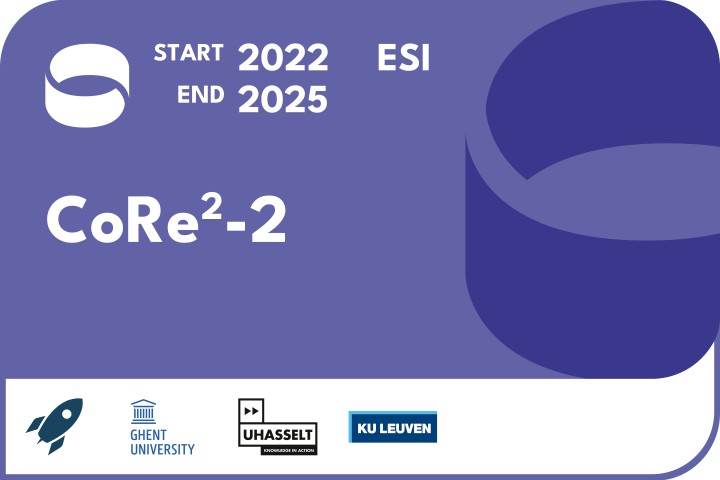CoRe²-2
Condensation Polymers for monomer/oligomer Recovery and Reuse 2

CoRe² aims at inventive chemical processes to revalorize waste fractions containing polyamides, polycarbonates and polyesters. Chemolytic routes providing controlled polymer splitting to chemical building blocks are highly preferred over physical recycling options, especially when most waste streams are impure or collected as polymer blends or inseparable layered materials,. The 18 M pre-phase of the project has already revealed strong leads for (i) selective dissociation of polyesters, polycarbonates and polyamides in polymer blends into their monomers, (ii) the catalytic conversion of splitting products (e.g. aliphatic amides from polyamides, e.g. bisphenols from polycarbonate) to high-value diamines, and (iii) the upcycling of end-of-life PET to high-performance thermoplastic co-polyesters (TPCs).
Based on these lead findings, CoRe² will strongly expand the fraction of polyesters, polycarbonates and polyamides that can be recycled to high-value monomers or polymers, and this at low temperatures (< 150oC) and reaction times (< 1 hr). A chief target is the selective upcycling of polyesters from mixed fiber waste, in particular textiles, as well as full chemical recycling options for physically inseparable polyester-polycarbonate-polyamide mixtures. A portfolio of catalytic methods will be designed to produce valuable linear aliphatic, cycloaliphatic or aromatic diamines. Re-using the obtained monomers, and integrating building blocks gained through chemcycling, we will design high-performance polymers like TPCs and polyphthalamides. New kinetic algorithms will be developed as tools for controlling and steering de/re-polymerisation in an industrial context, facilitating the take-up at higher TRL level.
The project results can be directly valorized by
- waste recycling companies: they can implement the innovative upcycling routes proposed for polyesters (other than bottle PET), polyamides, polycarbonates, etc, especially for physically inseparable mixtures;
- polyurethane producers, polyamide producers: they can use the diamines that are sourced from waste feedstocks rather than from virgin fossil feeds; also amine manufacturers can benefit;
- textile companies: we hand them concepts to produce / use fibers that are designed for recycling;
- (co)polyester/(co)polyamide manufacturers: they can produce thermoplastic copolyesters and polyphthalamides using a range of recycled monomers;
- polymer producing companies aiming at software for kinetic and process control.